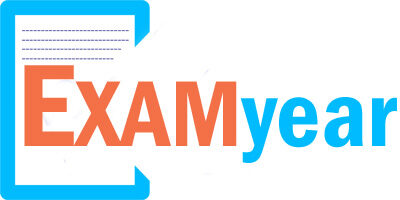MSW Interview Questions
Here are the direct download links for the MSW Interview Questions and Answers Paper Pdf. Also, get the Master of Social Work Question Paper from the link at the end of the article. Download the Master of Social Work Question Paper Pdf given below and refer all the papers.

Click Here MSW Previous Year Question Paper is uploaded on our page. These papers help applicants of MSW recruitment during the preparation. MSW Previous Year Question Paper pdf direct links are in the table below. Also, download the MSW Interview Questions paper pdf in the table following.
Interview Questions for MSW
1. Professional Social Work is focused on :
(A) Problem solving and change
(B) Problem identification and change
(C) Problem formulation and change
(D) Problem identification
2. The………………………..in England and the United States during late 19th century helped the poor learn skills required for urban living.
(A) Poor Houses
(B) Settement Houses
(C) Beggar Homes
(D) Half-way Homes
3. ……………………..is discrimination in favour of the able bodied person.
(A) Sexism
(B) Ableism
(C) Cabalism
(D) Anabolism
4. Pradhan Mantri Kaushal Vikas Yojana is a programme for :
(A) Rural Roads Construction
(B) Skill Development
(C) Adult Education
(D) Girls Education
5. The founder of Human Relation School of Thought was ……………..
(A) Eric Erickson
(B) Sigmund Freud
(C) MacIver and Page
(D) Elton Mayo
6. A social worker involved in genetic counselling is required to :
(A) Help the couple detect fetal abnormalities
(B) Help the couple make a decision to abort the fetus in case of fetal abnormalities
(C) Share the facts, provide emotional support and facilitate decision-making.
(D) Mobilize resources to support the couple to go in for adoption
7. Hamal Panchayat in Pune was started by …………………….
(A) Dr. Madhukar Deval
(B) Baba Padamji
(C) Baba Adhav
(D) Anna Hajare
8. Which one of the following is not the goal of field work in social work ?
(A) to integrate the theories and practices learned in the classroom
(B) to develop a sense of commitment to the social work profession
(C) to develop and demonstrate skills in social work
(D) to evaluate the functioning of social work setting
9. Who defined social stratification as a horizontal division of society with higher and lower social units ?
(A) Murray
(B) Cooley
(C) Williams
(D) Lundberg
10. Classification of primary group and secondary group is given by :
(A) Cooley
(B) MacIver
(C) Sumner
(D) Giddings
11. The Psycho-analytic approach in helping a person to solve her problem involves the initial stage, transference stage, consolidation stage and resolution stage. Which of the following best describes the transference stage ?
(A) The client assigns her destructive feelings to past life experience.
(B) The client transfers her feelings for a significant person in the childhood to the therapist.
(C) The client is transferred to the hospital for in-patient care.
(D) The therapist transfers her skills for treating the client
12. Nivedita’s mother was diagnosed as having cervical cancer. After initial shock, Nivedita said, ‘‘The doctor may have wrongly diagnosed my mother’s ailment’’. Which of the following defense mechanisms was Nivedita using ?
(A) Repression
(B) Denial
(C) Reaction formation
(D) Displacement
13. The difference between women’s moral development in relation to men’s moral development was proposed by :
(A) Lawrence Kohlberg
(B) Carol Gilligan
(C) Eric Erikson
(D) Judith Butler
14. The younger generation transfer knowledge to the older generation is known as …………………….
(A) Gen-next socialization
(B) E-Socialization
(C) Reverse socialization
(D) Retro-socialization
15. Liberal feminist theory was propounded by :
(A) Karl Marx
(B) MacIver
(C) Baker
(D) Acker
16. The principles underlying case work relationship were postulated by :
(A) Biestek
(B) Perlman
(C) Mary Richmond
(D) Friedlander
17. Social case work predominantly deals with :
(A) Economic issues
(B) Psycho-social issues
(C) Physical issues
(D) Social issues
18. …………………… provided the three classic phases of case work.
(A) H.H. Perlman
(B) Mary Richmond
(C) F. Biestek
(D) Kopnowska
19. Primary groups are those in which …………………………..
(A) Individuals intimately interact and cooperate over a long period of time
(B) Individuals come together to achieve their fundamental rights
(C) Individuals join together to form an association
(D) Individuals make use of the facilities available in a housing colony
20. Which of the following statements is correct ?
(A) Group discussion could be an important component in group work
(B) A good programme in group work must have an attendance of at least 20%
(C) A group programme in group work must have a chief guest
(D) A good public address system is essential for group work programme
| Interview | Objective |
| UPSC | Quiz |
| UGC NET | GK |
| LMSW | MCQ |
| MSW |
21. The group morale is initiated and maintained by :
(A) Punishing wrong doers in the group
(B) Comparing the behaviour of members in the group
(C) Offering material incentives to the members
(D) Role modeling
22. Group work with adolescents should mainly focus on ……………………….
(A) Academic excellence
(B) Recreation and self-growth
(C) Group therapy
(D) Conflict resolution
23. The ‘group’ in Social Group Work is …………………………
(A) Spontaneous
(B) Formed in a planned manner
(C) Formed through election
(D) Disunited
24. The full form of ‘REBT’ is :
(A) Rational Expression Behaviour Therapy
(B) Rational Empathetic Behaviour Therapy
(C) Rational Emotive Behaviour Therapy
(D) Rational Encouraging Behaviour Therapy
25. Who gave the call for Sampurna Kranti (Total Revolution) ?
(A) Mahatma Gandhi
(B) Verghese Kurein
(C) Vinoba Bhave
(D) Jay Prakash Narayan
26. Initial phase of community work is ………………………..
(A) Providing relief
(B) Understanding community profile
(C) Organising health camp
(D) Planning leader training
27. According to Jack Rothman there are . …………… …….. models of community organisation.
(A) Five
(B) Six
(C) Four
(D) Three
28. The revolutionary theory of social movement was introduced by ………
(A) Vinoba Bhave
(B) Karl Marx
(C) Nelson Mandela
(D) S.M. Dange
29. Role of social worker in social planning model is ……………………….
(A) Motivator
(B) Facilitator
(C) Negotiator
(D) Advocate
30. Who among the following developed community activism in many cities across America ?
(A) Pavlo Friere
(B) Saul Alinskey
(C) Murry Ross
(D) Arthur Dunham
31. Murry Ross and Jack Rothman have attempted a classification of community organisation practice on the basis of ………………………
(A) Goals
(B) Objectives
(C) Methods
(D) Skills
32. The most significant contribution of Pavlo Friere’s work is his :
(A) Insight into the pedagogy of oppressed
(B) Insight into the education of oppressed
(C) Insight into the culture of poverty
(D) Insight into the political nature of education
33. Saul Alinsky’s People’s Organisations were based on the use of power, action and justice to fight :
(A) Racism, poverty and isolation
(B) Gender discrimination, family dossiers and separation
(C) Illiteracy, malnutrition and individuality
(D) Slavery, beggary and poor health
34. There is no association between ethical values and corruption, this is a type of ………………….. hypothesis.
(A) Null hypothesis
(B) Alternative hypothesis
(C) Positive hypothesis
(D) Negative hypothesis
35. The basic assumption of the Mixed- Method Research is that the combination of …………………….. methods provide a better understanding of research problem than one of the research methods alone.
(A) Quantitative and qualitative
(B) Survey and case study
(C) Quantitative and participatory
(D) Qualitative and survey
36. A philosophy called ‘‘Constructivism’’ is associated with :
(A) Qualitative Research
(B) Quantitative Research
(C) Experimental Research
(D) Survey Research
37. Sum of the values of all the items divided by the total number of items is known as :
(A) Mean
(B) Median
(C) Mode
(D) Range
38. ……………………… refers to when your findings truly represents the phenomenon you wish to measure.
(A) Reliability
(B) Validity
(C) Replicability
(D) Atheneite
39. Examining all available literature to get acquainted with the selected problem :
(A) Theory analysis
(B) Policy analysis
(C) Review of literature
(D) Review of documents
40. Method of science is perhaps the most commonly used method of knowing or fixing beliefs because knowledge attained through science is subjected to ……………………………..
(A) Empirical tests
(B) Analytical tests
(C) Field tests
(D) Logical tests

